
Beni Suef: Egypt's Tranquil Riverside Gem
Beni Suef, nestled along the west bank of the Nile River, offers a tranquil escape from Egypt's bustling cities. Known for its rich history and lush landscapes, Beni Suef is a hidden gem waiting to be explored by travelers seeking a blend of culture and nature. The city is home to several ancient sites, including the ruins of Heracleopolis, the capital of Middle Egypt during the First Intermediate Period. These historical treasures provide a unique glimpse into Egypt's past, making Beni Suef a must-visit for history enthusiasts. Beyond its historical allure, Beni Suef boasts a serene natural beauty. The city's proximity to the Nile River allows visitors to enjoy picturesque views and relaxing boat rides. The local markets are vibrant and full of life, offering a chance to experience the authentic Egyptian lifestyle. Here, you can find handmade crafts, fresh produce, and traditional Egyptian cuisine that will tantalize your taste buds. Beni Suef is also a gateway to several natural reserves and parks, perfect for outdoor enthusiasts. The Wadi Sannur Cave, located just a short drive from the city, is a breathtaking natural wonder with its stunning stalactite formations. Whether you're an adventurer, a history buff, or simply looking to unwind, Beni Suef provides a diverse range of activities to suit all interests.
Local tips in Beni Suef
- Visit the local markets early in the morning for the freshest produce and unique handmade crafts.
- Dress modestly, as Beni Suef is a more conservative area compared to larger Egyptian cities.
- Hire a local guide when exploring historical sites to gain deeper insights into the city's rich past.
- Take a boat ride on the Nile during sunset for breathtaking views and a peaceful experience.
- Plan a day trip to the Wadi Sannur Cave for a stunning natural adventure.
Beni Suef: Egypt's Tranquil Riverside Gem
Beni Suef, nestled along the west bank of the Nile River, offers a tranquil escape from Egypt's bustling cities. Known for its rich history and lush landscapes, Beni Suef is a hidden gem waiting to be explored by travelers seeking a blend of culture and nature. The city is home to several ancient sites, including the ruins of Heracleopolis, the capital of Middle Egypt during the First Intermediate Period. These historical treasures provide a unique glimpse into Egypt's past, making Beni Suef a must-visit for history enthusiasts. Beyond its historical allure, Beni Suef boasts a serene natural beauty. The city's proximity to the Nile River allows visitors to enjoy picturesque views and relaxing boat rides. The local markets are vibrant and full of life, offering a chance to experience the authentic Egyptian lifestyle. Here, you can find handmade crafts, fresh produce, and traditional Egyptian cuisine that will tantalize your taste buds. Beni Suef is also a gateway to several natural reserves and parks, perfect for outdoor enthusiasts. The Wadi Sannur Cave, located just a short drive from the city, is a breathtaking natural wonder with its stunning stalactite formations. Whether you're an adventurer, a history buff, or simply looking to unwind, Beni Suef provides a diverse range of activities to suit all interests.
When is the best time to go to Beni Suef?
Iconic landmarks you can’t miss
Jewel Inn Beni Suef
Enjoy a relaxing stay at Jewel Inn Beni Suef, your gateway to exploring the historical and cultural heart of Egypt on the Nile.

Cavello
Enjoy Western cuisine with scenic views at Cavello restaurant on Ismailia's beautiful Corniche. A delightful dining experience awaits!
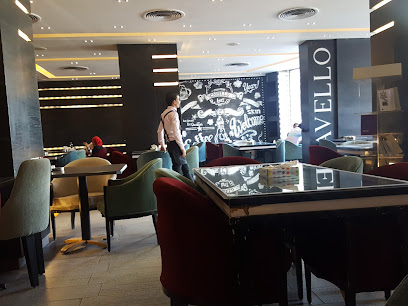
El Bakry Palace Hotel
Experience comfort and convenience at El Bakry Palace Hotel in Beni Suef, your gateway to exploring the rich culture and attractions of the city.
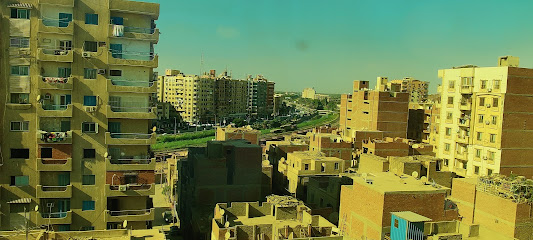
Meidum Pyramid
Explore the Meidum Pyramid, an ancient architectural marvel in Egypt, showcasing the evolution of pyramids and rich history.
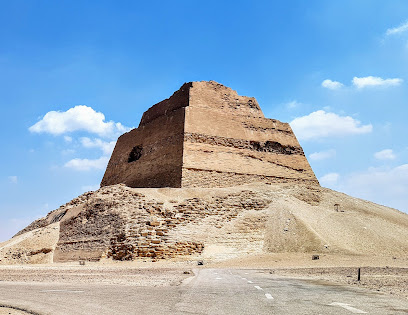
bolivar
Experience authentic Egyptian cuisine with stunning Nile views at Bolivar Restaurant in Beni Suef. Open daily from 9 AM to 2 AM!
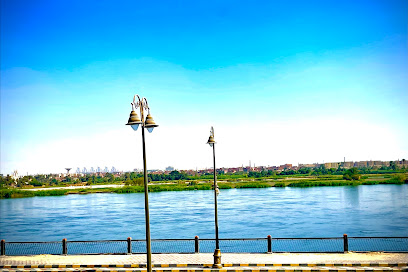
حديقة النيل - Nile Park
Escape to the green oasis of Nile Park in Beni Suef for relaxation and scenic views along the legendary river.
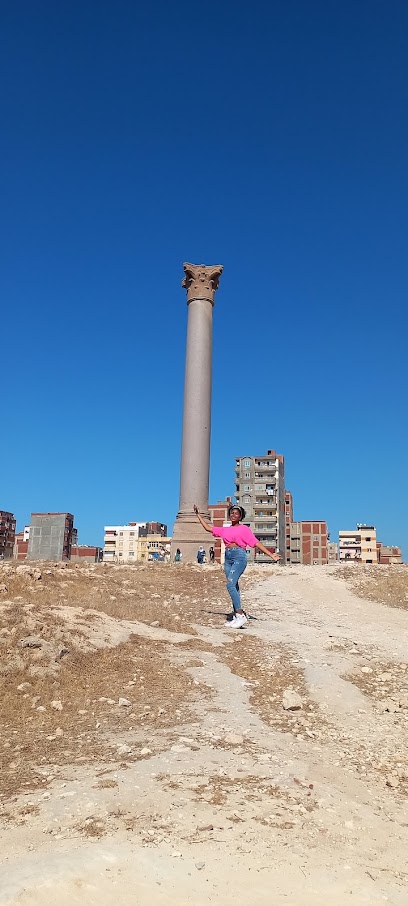
Mosque of Imam Ali Ibn Abi Taleb
Discover the serene beauty and spiritual significance of the Mosque of Imam Ali Ibn Abi Taleb in Beni Suef, Egypt.
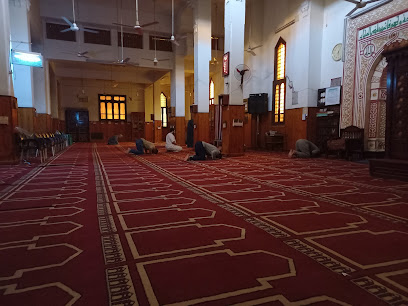
SANTOS RESTAURANT & CAFE
Enjoy a relaxed dining experience at Santos Restaurant & Cafe in Beni Suef, offering a diverse menu and welcoming atmosphere for all visitors.
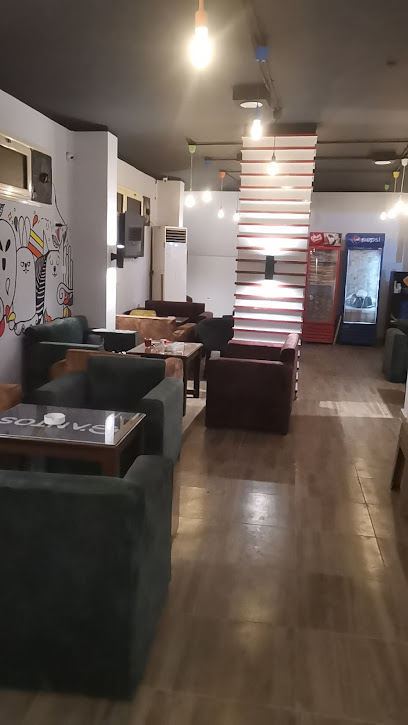
محمية كهف وادى سنور
Explore Wadi Sannur Cave: A rare geological treasure in Beni Suef, Egypt, with stunning stalactite and stalagmite formations.
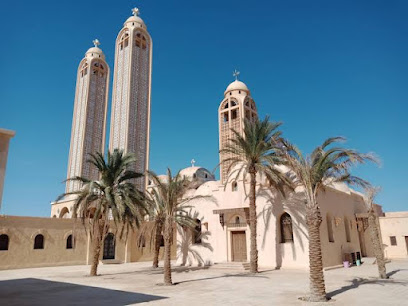
Beni Suef Museum
Explore artifacts from the Pharaonic, Greco-Roman, Coptic & Islamic eras at the Beni Suef Museum, a cultural gem in the heart of Beni Suef.
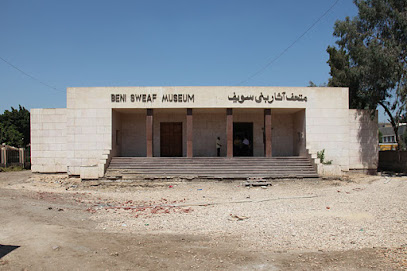
Bakkar Crepe
Enjoy delicious pizzas and exquisite crepes at Bakkar Crepe, a local Beni Suef favorite open from morning until late at night.

El Gawhara
Experience authentic Egyptian cuisine at El Gawhara in Beni Suef, where tradition meets flavor in every dish. A local favorite!

Beni suef
Explore Beni Suef's vibrant cosmetics scene and delve into the rich traditions of Egyptian beauty in this charming city.

ممر
Discover the convenience of ممَر in New Bani Suef, your reliable parking solution for exploring the rich culture and history of Beni Suef Governorate.

Umm El Baragat
Discover Umm El Baragat: An ancient Egyptian statue offering a serene and authentic historical experience in Faiyum Governorate.

Unmissable attractions to see
كورنيش النيل ببني سويف
Discover the tranquil beauty of Kornish El Nile in Beni Suef, where local culture meets stunning river views for a perfect getaway.
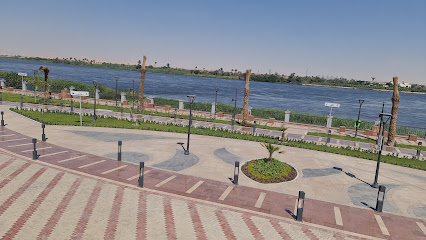
Maydoum Pyramid
Explore the historical marvel of the Maydoum Pyramid, a unique glimpse into ancient Egyptian architecture and culture.
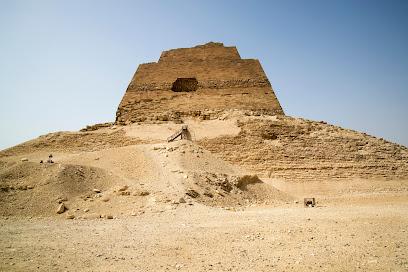
حديقة النيل - Nile Park
Explore the serene beauty of Nile Park in Beni Suef, Egypt, where lush landscapes and tranquil waters create the perfect escape.
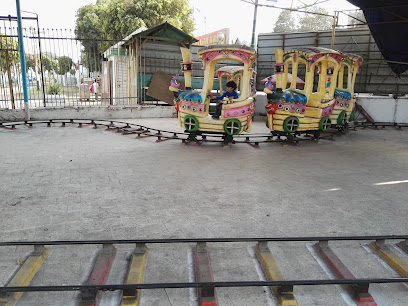
حديقة عابدين
Discover the tranquility of حديقة عابدين in Beni Suef, Egypt - a serene garden perfect for relaxation and enjoying nature's beauty.
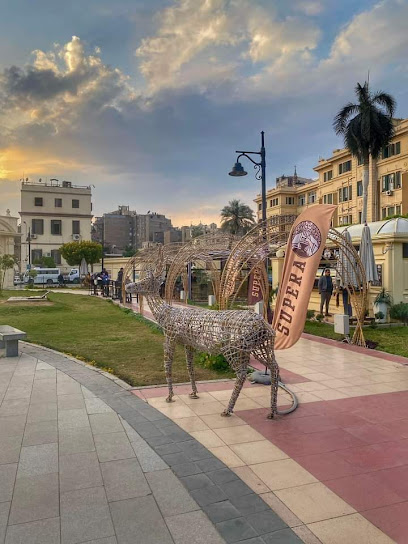
ميدان الحمام
Discover the tranquility of Al-Hamam Square, a green oasis in Beni Suef perfect for relaxation and local cultural experiences.
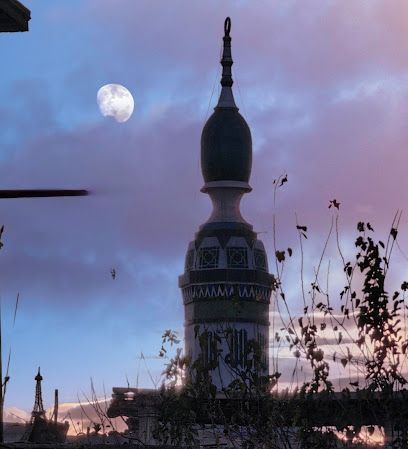
حديقه ميدان مولد النبي
Explore the tranquil Garden of Prophet's Birthplace in Beni Suef, a serene escape rich in history and natural beauty, perfect for a peaceful retreat.

فيو لاند
Discover the serene beauty of Fiu Land in Beni Suef, Egypt, where nature meets tranquility in a perfect outdoor getaway.
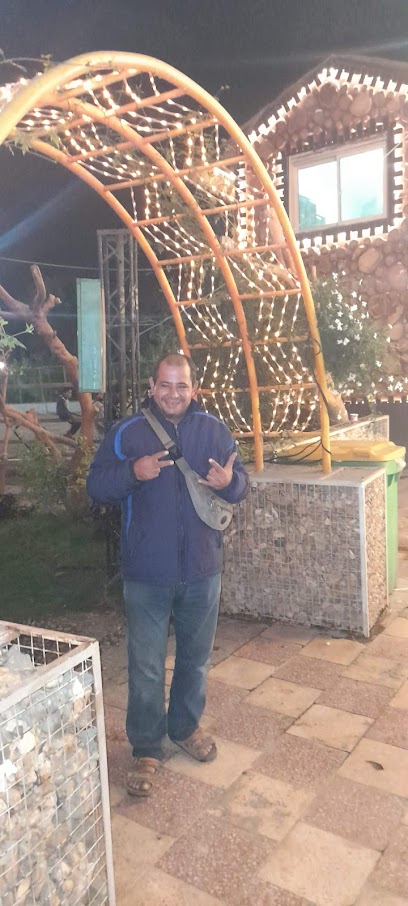
ميدان
Explore the lush gardens of Beni Suef, a serene escape into nature's beauty, perfect for relaxation and memorable experiences.

تمثال الامام البوصيري للفنان الدكتور محمد ماضى
Explore the Imam Al-Bousiri Monument in Beni Suef, a stunning tribute to heritage and artistry, celebrating the legacy of a poetic legend.
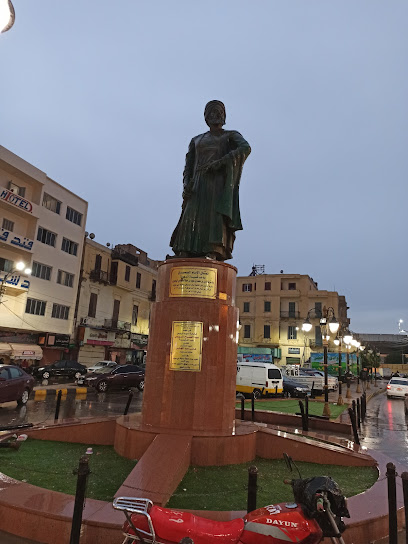
ميدان المديرية
Discover the serenity of Midan El-Medina, a beautiful garden oasis in Beni Suef, perfect for relaxation and enjoying nature's beauty.
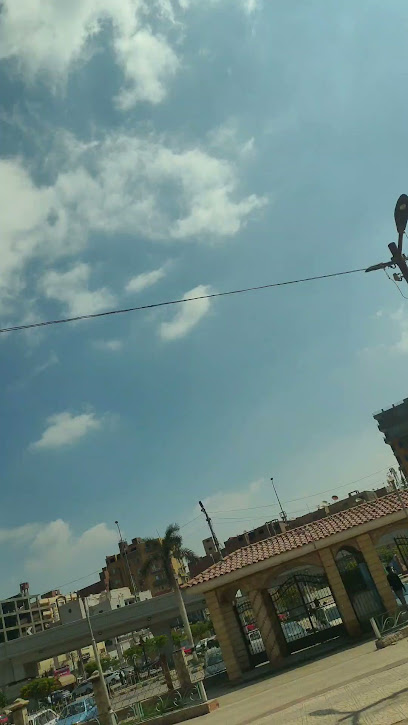
جزيرة أبوزيد
Experience the serene beauty of Abu Zaid Island, a peaceful park in Beni Suef Governorate, perfect for nature lovers and families alike.
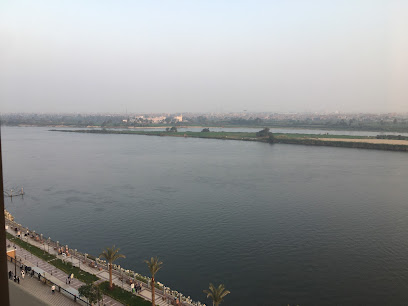
واحة المخلوف
Experience the natural beauty of Al-Makhlouf Oasis in Beni Suef, a tranquil garden retreat perfect for relaxation and exploration.
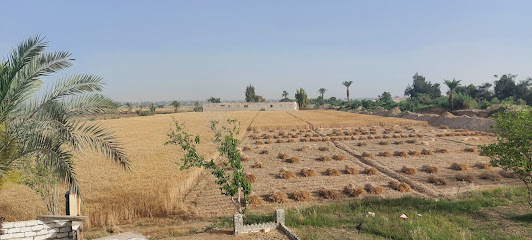
حديقه شرق النيل
East Nile Park: A peaceful escape into nature in New Bani Suef, perfect for relaxation, picnics, and enjoying the beauty of lush landscapes.

Pyramid of Lahun
Discover the Pyramid of Lahun, an ancient Egyptian treasure in Faiyum Governorate, showcasing stunning architecture and rich history.

ارض محمد صفى الدين محمد
Explore the lush Gardens of Muhammad Safi al-Din Muhammad in Beni Suef – a tranquil retreat filled with vibrant flora and serene pathways.

Essential places to dine
Lamera
Discover Lamera: A vibrant Izakaya restaurant offering authentic Japanese flavors and fast food delights along the beautiful Nile Corniche in Beni Suef.
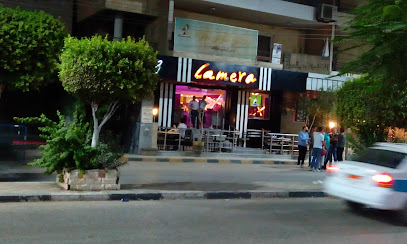
A-CLASS Resturant&cafe
Discover authentic Western flavors at A-CLASS Restaurant & Cafe in Beni Suef - where every meal is a delightful culinary journey.
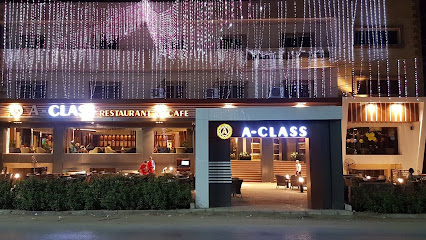
Caviar Restaurant
Discover culinary excellence at Caviar Restaurant in Beni Suef - where fresh seafood meets exceptional service.
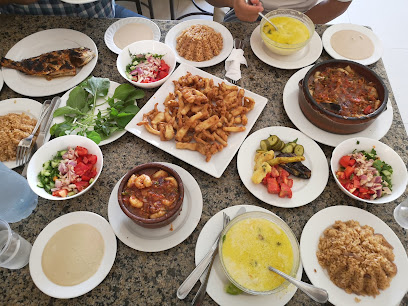
Branches Oriental
Experience the best of Western fast food at Branches Oriental in Beni Suef – where quality meets flavor.
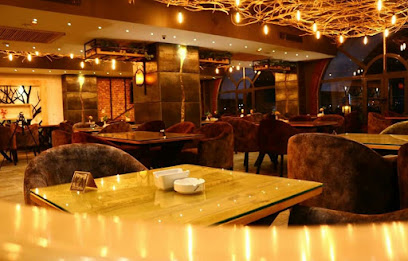
Ali Baba Restaurant
Experience the rich flavors of Egypt at Ali Baba Restaurant in Beni Suef - where traditional meat dishes meet fast food convenience.
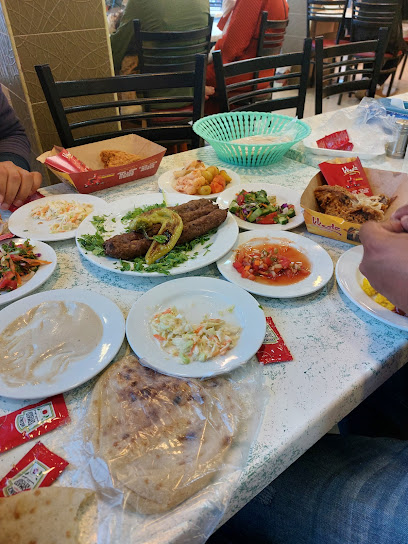
bolivar
Experience authentic Egyptian cuisine at Bolivar Restaurant by the Nile in Beni Suef – where flavors meet scenic beauty.
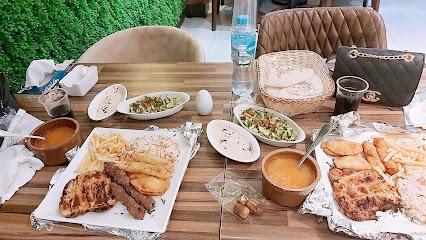
Kaza Meza Restaurant
Discover the rich flavors of Egypt at Kaza Meza Restaurant in Beni Suef – perfect for quick bites and delightful takeout.
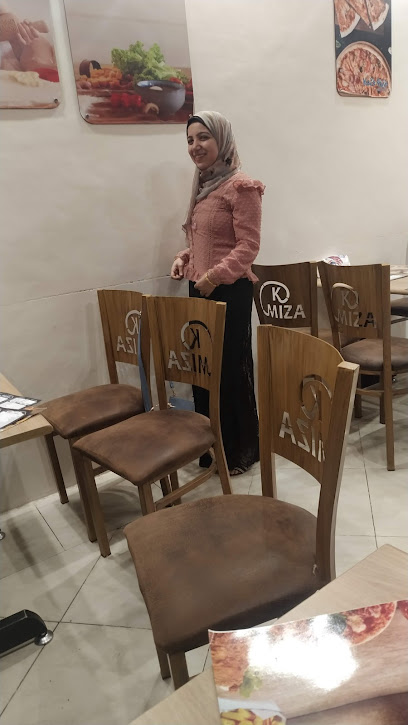
El Roof
Discover authentic Egyptian flavors at El Roof in Beni Suef – where every meal is a delightful journey through local cuisine.
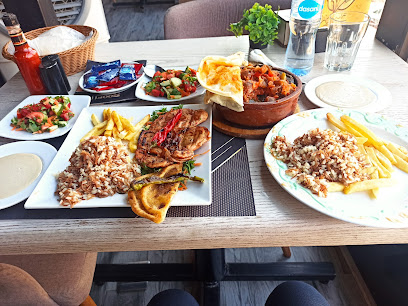
ON PUBLIC
Savor authentic Egyptian sandwiches at ON PUBLIC in Beni Suef - where tradition meets flavor in every bite.
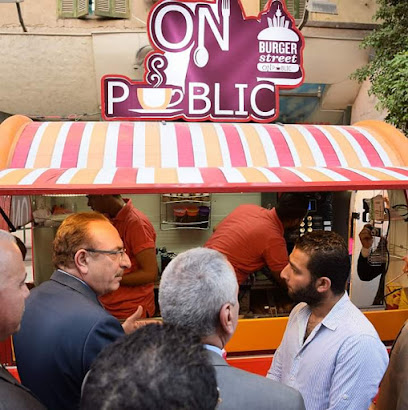
كشري البكري
Discover authentic Egyptian flavors at Koshari Al-Bakri in Beni Suef – where tradition meets taste in every hearty serving.
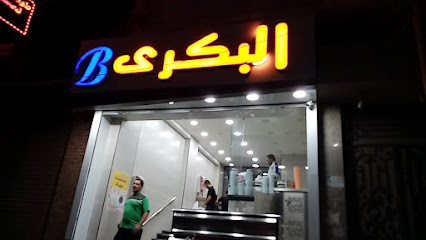
Garage Lounge
Discover the vibrant flavors of Egypt at Garage Lounge – where every meal is an unforgettable experience!
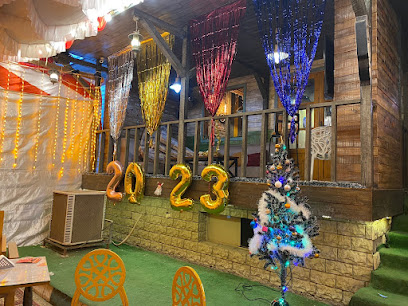
زاكس فرايد تشكن بني سويف - Zack's
Discover the mouthwatering taste of authentic Egyptian fried chicken at Zack's Fried Chicken in Beni Suef.
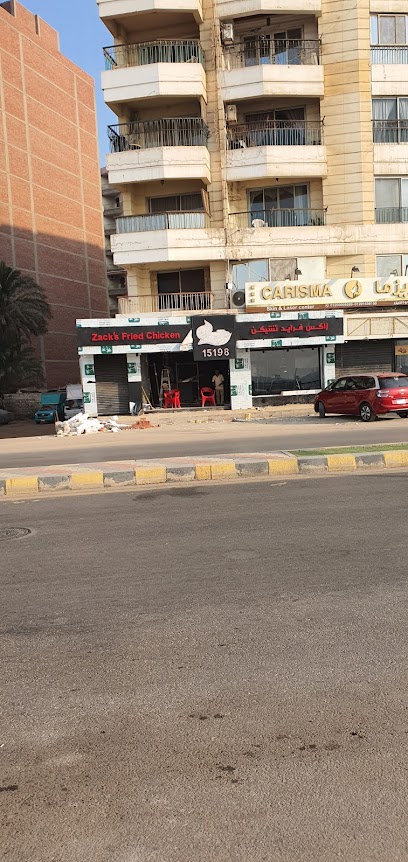
Nile Plaza Restaurant
Discover authentic Egyptian cuisine at Nile Plaza Restaurant in Beni Suef – where every meal tells a story.
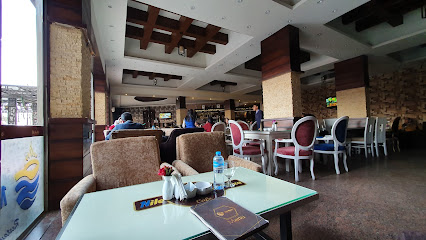
Puffy & Fluffy - بفي آند فلفي
Discover the charm of Puffy & Fluffy in New Beni Suef - where delightful breakfasts meet cozy ambiance.
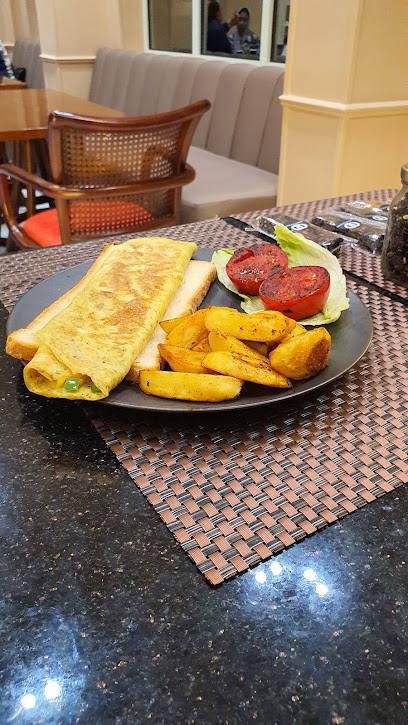
Bakkar Crepe
Discover delightful flavors at Bakkar Crepe in Beni Suef - where delicious pizzas meet exquisite crepes.

Markets, malls and hidden boutiques
زد كولكشن بني سويف - Z Collection Beni Suef
Discover the latest fashion trends at Z Collection Beni Suef, your go-to clothing store for stylish apparel and accessories in Egypt.
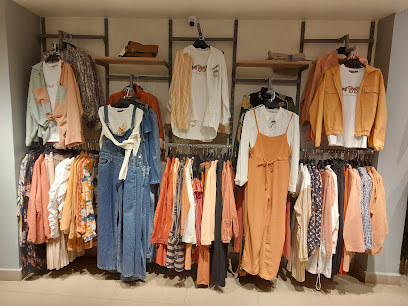
DOLCE Love Yourself
Explore the latest trends in women's fashion at DOLCE Love Yourself, your go-to clothing store in Beni Suef, Egypt.
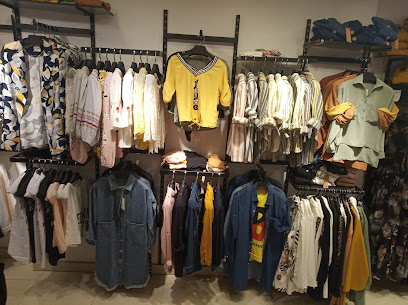
بنكي لولي باب بني سويف/ Pinky Lollypop Beni-suef
Explore Pinky Lollypop in Beni Suef for trendy and affordable children's clothing that makes shopping fun for the whole family.
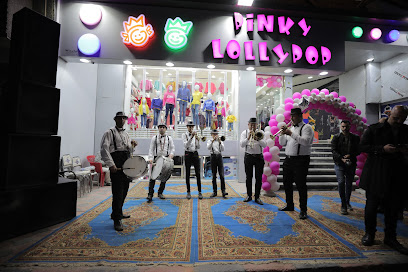
Beni suef
Explore Beni Suef, a vibrant city in Egypt that beautifully blends history, culture, and artisanal craftsmanship, perfect for an authentic travel experience.

love smile
Explore Love Smile in Beni Suef, your go-to destination for stylish and affordable fashion accessories that elevate any outfit.

Ghazl Store
Explore Ghazl Store in Beni Suef for a unique cosmetics shopping experience, featuring quality products and expert advice in a vibrant atmosphere.
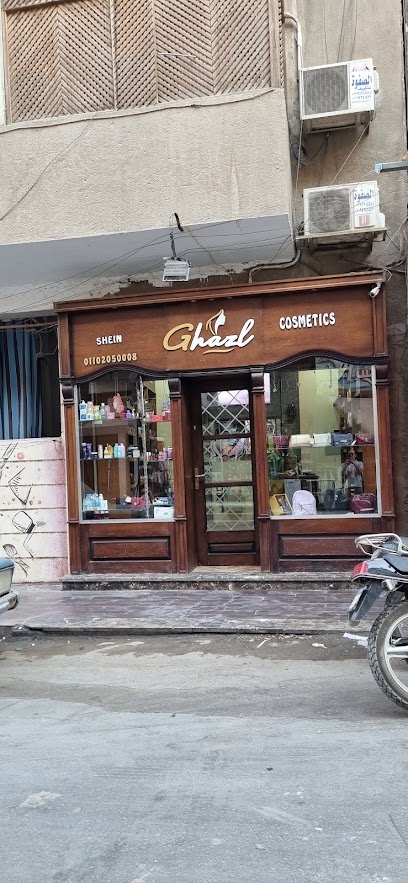
آتيليه زفه
Explore the vibrant fashion scene at آتيليه زفه in Qism Bani Sweif, where unique styles meet local craftsmanship.

bello brand store
Discover unique vintage finds and immerse yourself in the charm of Beni Suef at Bello Brand Store, the ultimate destination for vintage clothing enthusiasts.
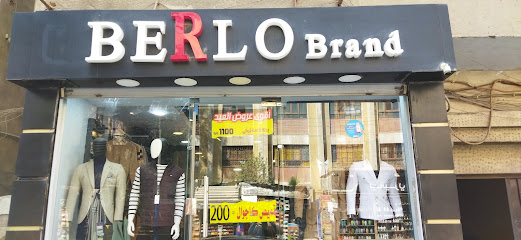
kashmir
Explore Kashmir, a unique gift shop in Beni Suef, offering handcrafted treasures and local souvenirs that celebrate Egyptian culture.

روزابيلا - اكسسوارات
Explore the charm of روزابيلا - اكسسوارات, a gift shop in Beni Suef offering unique handcrafted accessories and local art to enrich your travel experience.
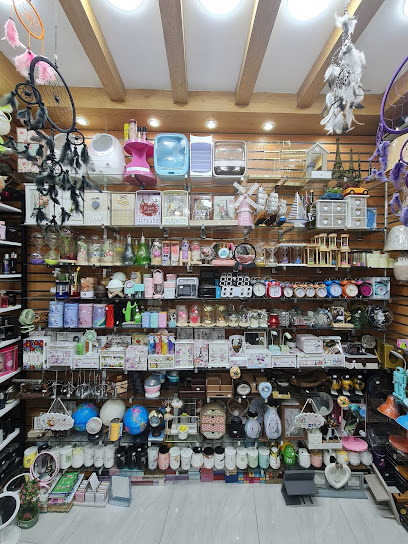
911its awanderful world
Explore 911its awanderful world in Beni Suef for an exceptional beauty shopping experience showcasing quality cosmetics and local beauty traditions.

حديده الديلر
Experience the vibrant culture of Beni Suef at حديدة الديلر, where unique local treasures await every traveler.

Kolna Market
Explore the vibrant Kolna Market in Beni Suef for a taste of local culture, unique shops, and delicious Egyptian street food.
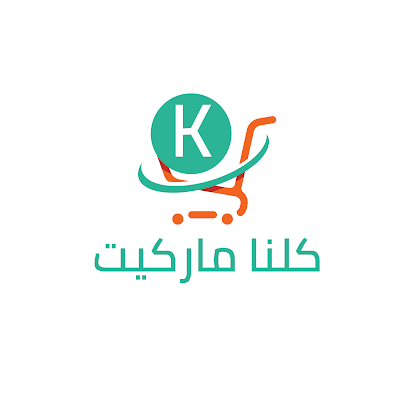
الفيروز لمستلزمات الحلويات
Discover a sweet haven at الفيروز لمستلزمات الحلويات, offering a vast selection of baking supplies and authentic Egyptian sweets in Beni Suef.

Biggest.store
Explore the Biggest.store in New Bani Suef for trendy clothing and accessories for all ages, blending style and comfort in every piece.
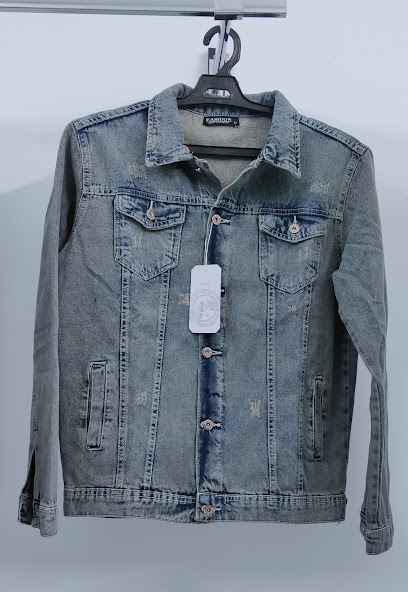
Essential bars & hidden hideouts
Lamera
Savor authentic Japanese cuisine at Lamera, an izakaya in Beni Suef offering a vibrant dining experience with sushi, ramen, and more.
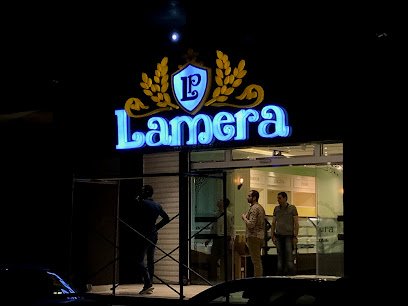
El Roof
Experience the rich flavors and hospitality of Beni Suef at El Roof, your go-to restaurant for authentic Egyptian cuisine.
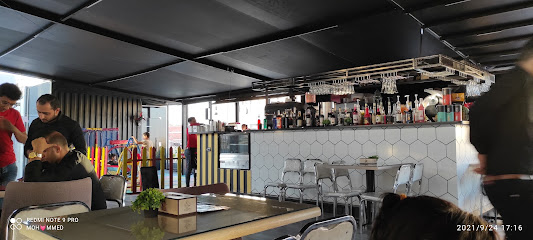
Garage Lounge
Discover Garage Lounge in Beni Suef for a delightful culinary journey through authentic Egyptian flavors and vibrant dining experiences.
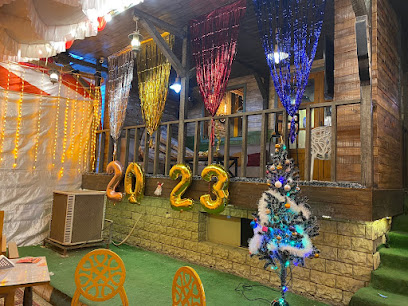
New cop marina cafe & restaurant
Discover culinary delights at New Cop Marina Cafe & Restaurant, where stunning Nile views and authentic flavors create an unforgettable dining experience.
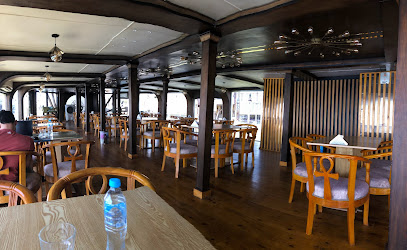
Squid game Cafe and restaurant
Immerse yourself in a thrilling dining experience at the Squid Game Cafe and Restaurant, where food meets the excitement of a popular series.
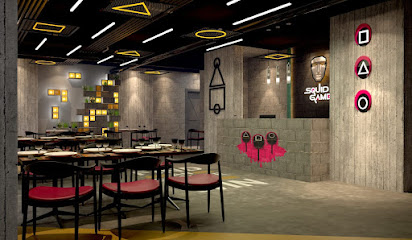
Global resturant
Experience the rich flavors of Egyptian cuisine at Global Restaurant, your culinary destination in Beni Suef for a delightful dining experience.
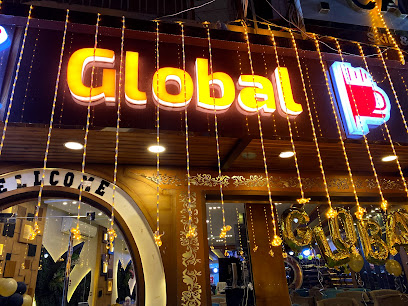
دكتور طاهر
Discover the vibrant atmosphere of Dr. Taher, a beloved bar in Bayad Al Arab, Beni Suef, perfect for relaxation and socializing.

محل وافل ومشروبات 12.pm بار
Experience the vibrant flavors of Beni Suef at 12.pm Bar, a local favorite for delicious waffles and refreshing drinks in a welcoming atmosphere.
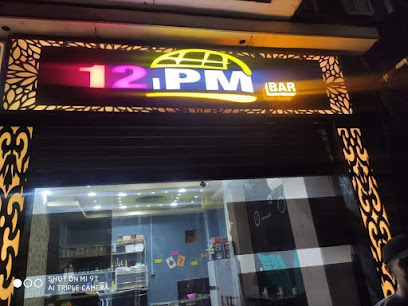
عصير برتقال مزيكا
Experience the zest of Beni Suef at عصير برتقال مزيكا, where fresh orange juice meets vibrant local culture.

Calamari - كالمياري
Experience the rich flavors of fresh seafood at Calamari - كالمياري, where the Nile meets culinary excellence in Beni Suef.
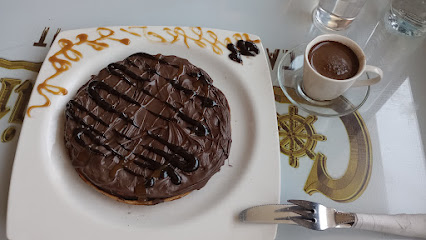
King weffel
Experience the vibrant nightlife at King Weffel, a lively bar in New Bani Suef offering a diverse drink menu and a cozy atmosphere.

قهوه دليفري
Discover the lively ambiance of قهوه دليفري in Beni Suef, where local flavors and culture blend seamlessly for an unforgettable experience.

بني حنين
Discover Bani Hanein, a vibrant bar in Beni Suef, where local culture meets lively nightlife for an unforgettable experience.

Café Chino
Discover the vibrant atmosphere and exquisite cocktails at Café Chino, a must-visit cocktail bar in New Bani Suef for tourists seeking nightlife.

Local Phrases
-
- Helloمرحبا
[Marhaba] - Goodbyeوداعا
[Wada'an] - Yesنعم
[Na'am] - Noلا
[La] - Please/You're welcomeمن فضلك
[Min fadlak] - Thank youشكرا
[Shukran] - Excuse me/Sorryعذرا
[A'zra] - How are you?كيف حالك؟
[Kayfa halak?] - Fine. And you?بخير. وأنت؟
[Bikhayr. Wa anta?] - Do you speak English?هل تتحدث الإنجليزية؟
[Hal tatahadath al-ingliziya?] - I don't understandأنا لا أفهم
[Ana la afham]
- Helloمرحبا
-
- I'd like to see the menu, pleaseأرغب في رؤية القائمة، من فضلك
[Arghab fi ru'yat al-qa'ima, min fadlak] - I don't eat meatأنا لا آكل اللحم
[Ana la aakul al-lahm] - Cheers!في صحتك!
[Fi sahtak!] - I would like to pay, pleaseأود أن أدفع، من فضلك
[Aawad an adfa', min fadlak]
- I'd like to see the menu, pleaseأرغب في رؤية القائمة، من فضلك
-
- Help!النجدة!
[Al-najda!] - Go away!انصرف!
[Ansuraf!] - Call the Police!اتصل بالشرطة!
[Itsal bialshurta!] - Call a doctor!اتصل بطبيب!
[Itsal bithibb!] - I'm lostلقد ضاعت طريقي
[Lakad da'at tariqi] - I'm illأنا مريض
[Ana mareed]
- Help!النجدة!
-
- I'd like to buy...أود أن أشتري...
[Aawad an ashtari...] - I'm just lookingأنا فقط أتفرج
[Ana faqat atfarrag] - How much is it?بكم ثمنه؟
[Bikam thamanuh?] - That's too expensiveهذا غالي جدا
[Hatha ghali jiddan] - Can you lower the price?هل يمكنك خفض السعر؟
[Hal yumkinuk khafd al-si'ar?]
- I'd like to buy...أود أن أشتري...
-
- What time is it?كم الساعة؟
[Kam al-sa'ah?] - It's one o'clockالساعة الواحدة
[Al-sa'ah al-wahida] - Half past (10)النصف بعد (العاشرة)
[Al-nisf ba'd (al-ashirah)] - Morningالصباح
[Al-subah] - Afternoonالظهر
[Al-dhuhr] - Eveningالمساء
[Al-masa'] - Yesterdayالأمس
[Al-ams] - Todayاليوم
[Al-yawm] - Tomorrowغدا
[Ghadan] - 1واحد
[Wahid] - 2اثنان
[Ithnan] - 3ثلاثة
[Thalatha] - 4أربعة
[Arba'a] - 5خمسة
[Khamsa] - 6ستة
[Sitta] - 7سبعة
[Sab'a] - 8ثمانية
[Thamaniya] - 9تسعة
[Tis'a] - 10عشرة
[Asharah]
- What time is it?كم الساعة؟
-
- Where's a/the...?أين...؟
[Ayna...?] - What's the address?ما هو العنوان؟
[Ma huwa al-unnwan?] - Can you show me (on the map)?هل يمكنك أن تريني (على الخريطة)؟
[Hal yumkinuk an tureeni (ala al-khariita)?] - When's the next (bus)?متى يأتي الحافلة التالية؟
[Mata ya'ti al-hafilah al-taliyah?] - A ticket (to ....)تذكرة (إلى...)
[Tazkirah (ila...)]
- Where's a/the...?أين...؟
History of Beni Suef
-
Beni Suef, located in Middle Egypt, traces its roots back to ancient times. The region was once part of the larger civilization that thrived along the Nile River. It served as an important agricultural hub due to its fertile lands. The city is believed to have connections with the ancient city of Heracleopolis, an influential center during the First Intermediate Period of Egypt.
-
During the Islamic era, Beni Suef experienced significant cultural and architectural developments. The city became a notable center for Islamic learning and scholarship. Several mosques and religious schools were established, contributing to its reputation as a hub for Islamic culture and education. The remnants of these structures still stand today, offering a glimpse into the city’s rich Islamic heritage.
-
Under Ottoman rule, Beni Suef continued to thrive as a regional center. The city saw the construction of new buildings and infrastructure, enhancing its status within the Ottoman Empire. The influence of Ottoman architecture can still be seen in some of the older structures in the city. This period also marked an era of increased trade and economic activity, further cementing Beni Suef's importance in the region.
-
In recent times, Beni Suef has undergone significant modernization and development. The construction of the Beni Suef University and various industrial projects has transformed the city into an educational and economic hub. The city's landscape has been reshaped with new buildings, roads, and facilities, reflecting its growth and progress in the contemporary era.
-
Beni Suef boasts a rich cultural heritage that includes traditional crafts, music, and festivals. The city's artisans are known for their skills in pottery, weaving, and other crafts, which have been passed down through generations. Local festivals and events celebrate this heritage, offering visitors a chance to experience the vibrant cultural life of Beni Suef.
Beni Suef Essentials
-
Beni Suef is located approximately 120 kilometers south of Cairo, Egypt. The easiest way to get there is by train from Cairo's Ramses Station, with regular services taking around 1.5 to 2 hours. Alternatively, you can take a long-distance bus from Cairo or other major cities. For those who prefer driving, renting a car is also an option, with a straightforward drive via the Cairo-Aswan Desert Road.
-
Within Beni Suef, local taxis and minibuses (known as 'microbuses') are the primary forms of transportation. Taxis are relatively inexpensive, but it's advisable to agree on the fare before starting your journey. Microbuses follow specific routes and are a budget-friendly option. For short distances, tuk-tuks are also available. Renting a car can provide more flexibility for exploring the surrounding areas.
-
The official currency in Egypt is the Egyptian Pound (EGP). While credit cards are accepted in some hotels, restaurants, and larger shops, cash is still king, especially in smaller establishments and markets. ATMs are available throughout Beni Suef, but it's wise to carry enough cash for small purchases and tipping. Currency exchange services are available in banks and some hotels.
-
Beni Suef is generally considered a safe destination, but standard precautions should be taken. Avoid walking alone at night in unfamiliar areas and keep an eye on your belongings in crowded places. Petty crimes like pickpocketing can occur, particularly in busy markets. Areas with higher crime rates include some of the outskirts and less developed neighborhoods. It is advisable to stay in well-lit and populated areas.
-
In case of emergency, dial 122 for police assistance, 123 for medical emergencies, and 180 for fire services. Beni Suef has several hospitals and medical clinics, including the Beni Suef University Hospital, which provides comprehensive medical services. Pharmacies are readily available for minor health issues and over-the-counter medications. Having travel insurance that covers medical emergencies is strongly recommended.
-
Fashion: Do dress conservatively, especially when visiting religious sites. Women should cover their shoulders and knees. Avoid wearing revealing clothing. Religion: Do show respect for local customs. Remove your shoes when entering mosques. Avoid public displays of affection. Public Transport: Do be polite and give up your seat to elderly passengers. Don't eat or drink on public transport. Greetings: Do greet people with a handshake. Use the right hand or both hands when offering something. Eating & Drinking: Do try local cuisines and accept food offerings graciously. Don’t refuse hospitality, as it is considered impolite.
-
To experience Beni Suef like a local, visit the traditional markets (souks) where you can buy fresh produce and local crafts. Engage with the locals, who are often friendly and willing to share stories about their culture and history. Don't miss a visit to the nearby Fayoum Oasis and its stunning natural landscapes. For a unique experience, attend a local festival or celebration to immerse yourself in the local culture.
Nearby Cities to Beni Suef
-
Things To Do in Cairo
-
Things To Do in Minya
-
Things To Do in Suez
-
Things To Do in Zagazig
-
Things To Do in Tanta
-
Things To Do in Ismailia
-
Things To Do in Asyut
-
Things To Do in Alexandria
-
Things To Do in Damietta
-
Things To Do in Port Said
-
Things To Do in Sohag
-
Things To Do in El Gouna
-
Things To Do in Hurghada
-
Things To Do in Dahab
-
Things To Do in Sharm El Sheikh









